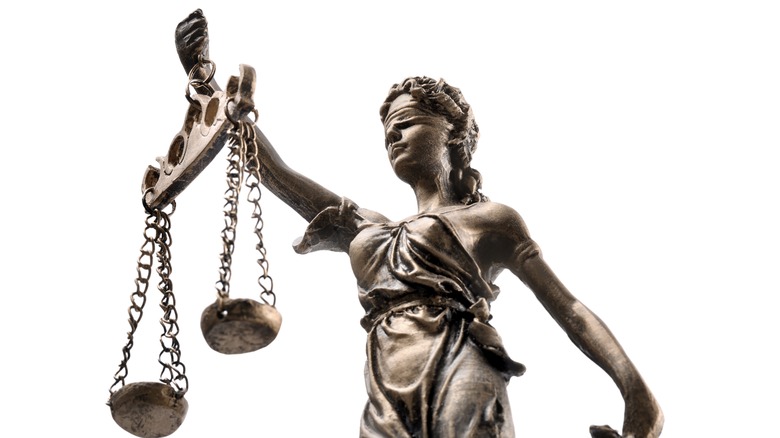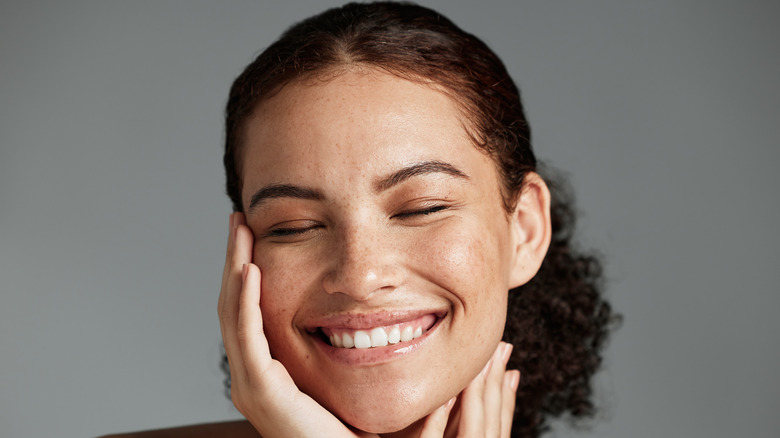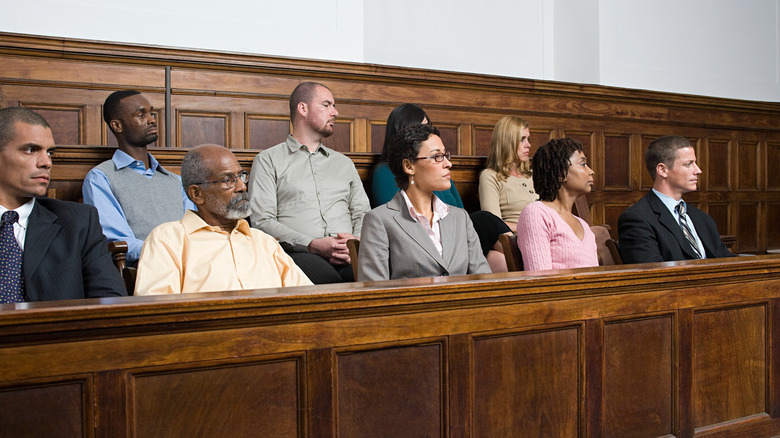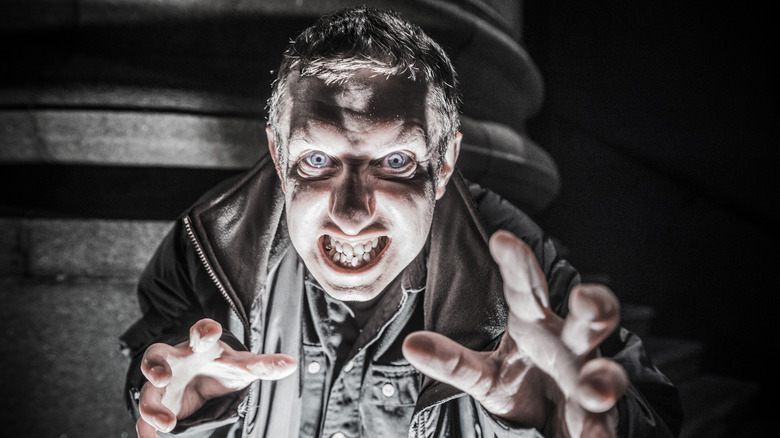Do Attractive People Face Fewer Legal Consequences?
It turns out justice isn't so blind after all, especially if you're a woman who is conventionally attractive. In general, studies have found that people considered attractive tend to have an easier life, especially when it comes to work where they're more likely to be hired and advance more quickly up the corporate ladder. And it appears that the same goes for the justice system. It starts with interactions with police officers. Juries too, are less likely to find attractive defendants guilty. A 2019 study published in the journal Psychiatry, Psychology and Law" that relied on "a nationally representative and longitudinal" body of research, found that this only holds true for conventionally attractive women, while good-looking men don't receive this same benefit.
The jury's out when it comes to the final process of the criminal justice system — sentencing. Some research determined that attractiveness also affects whether a defendant receives a more lenient sentence. But the more comprehensive 2019 study found this bias towards attractiveness abruptly ends at sentencing. Judges are no more likely to give conventionally attractive women a lighter sentence, such as probation rather than jail time. The 2019 study found that "attractiveness does not appear to be significantly associated with the odds of being incarcerated or being sentenced to probation."
Perceived attractiveness confers rewards
While researchers have yet to determine exactly why people considered attractive are treated more leniently by the criminal justice system, studies on attractiveness in general seem to point to a hidden bias towards good-looking people. "The results generated from these studies have consistently shown that attractive people are perceived as being more intelligent, more socially competent, more mentally stable, and more trustworthy," according to the 2019 study.
This is known as the halo effect of attractiveness and it appears to be an unconscious bias. "People who are physically attractive are assumed to be clever, successful, and have more friends," researcher Sandie Taylor, Ph.D., told Psychology Today. "It is tragic in a way." Taylor says that bias in favor of physically alluring people often has real-world implications because looks are not an indicator of true character.
This unconscious bias towards beauty starts early. Children deemed more attractive get a leg up academically as well, receiving more hands-on help from teachers and being judged as having more potential than less attractive children. The trend continues into the professional world. "Physically attractive individuals are more likely to be interviewed for jobs and hired, they are more likely to advance rapidly in their careers through frequent promotions, and they earn higher wages than unattractive individuals," according to a 2017 study published in the journal Behavioral and Brain Sciences. This bias can also be found in the justice system.
Less likely to be arrested or convicted
Interactions with the justice system most often start with the police and if you're a conventionally attractive woman, you're less likely to be arrested. Police have a lot of leeway in who to arrest in the absence of glaringly obvious evidence of a crime. If you're deemed an attractive woman you may get a pass. The researchers in the 2019 study believe this has to do with the fact that in general there are more male police officers "and thus they may be swayed, either consciously or unconsciously, by the attractiveness of females." Jurors too, may fall prey to the halo effect and give unwarranted credibility to an alluring defendant's testimony.
The opposite holds true for attractive men, again likely due to the male-dominated law enforcement world. Researchers found that in regards to getting arrested, all men are created equal. Good looks don't help a guy's chances of avoiding being charged with a crime. The researchers didn't delve into why a jury's beauty bias is limited to women. While law enforcement officers and juries tend to favor conventionally attractive women, that's where it ends. Judges are much less swayed by perceived attractiveness, according to the 2019 study.
The opposite holds for those deemed unattractive
Unlike conventionally attractive people who get outsized benefits from childhood on, for those deemed unattractive, the opposite is true. It begins at school and snowballs later in life. These children receive less help from teachers and are deemed less academically gifted. Similarly, when it comes to the job market, "unattractive applicants are rated less favorably than attractive applicants," according to "Physical Attractiveness Bias in Hiring: What Is Beautiful Is Good."
With the justice system, those considered unattractive have it even worse. A 2010 study published in the journal Behavioral Sciences and the Law, found that defendants who don't fit traditional beauty standards have a 22% increase in the odds of being convicted and those who are convicted end up with longer sentences than the beautiful people — nearly two years longer.
The study blamed this in part on jurors who went with their guts rather than analytical analysis of evidence. The study found jurors were just as likely to convict a conventionally attractive defendant as someone considered unattractive in the face of strong evidence, but a less attractive defendant could end up worse off in "in cases where the evidence is ambiguous and the charged offense is somewhat minor," the 2010 study's lead author Justin Gunnell told the Cornell Chronicle.
The researchers in the previously mentioned 2019 study pointed out that while the beauty bias is "statistically significant" it's "very small in effect size." Still, as in other aspects of life, people considered conventionally attractive do indeed face fewer legal consequences.



